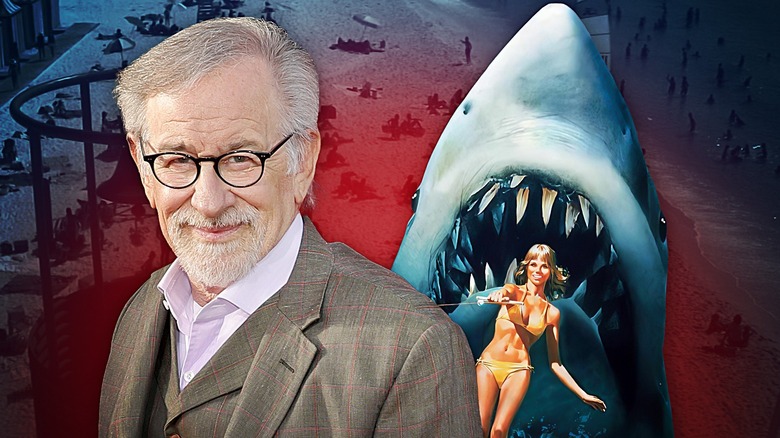While “Jaws” wasn’t Steven Spielberg’s first movie, it was the movie that put Spielberg on the map. Plagued by production woes (it went over-budget and over-schedule), there was a really good chance that “Jaws” could’ve ended Spielberg’s career just as it was getting started. Instead, the killer shark flick pretty much invented the summer blockbuster as we know it and made Spielberg a superstar. Audiences lined up around the block to see what Spielberg had created, and the massive success pretty much ensured Spielberg could do whatever the hell he wanted for the rest of his career. So what did Spielberg want to do next? Well, it sure wasn’t a “Jaws” sequel, that’s for sure. In 1975, Spielberg — according to John Baxter’s book “Steven Spielberg: The Unauthorised Biography” — scoffed at the idea, saying that making a sequel “is just a cheap carny trick.”
But studio Universal definitely wanted a sequel. Assuming that someone would make it with or without them, “Jaws” producers David Brown and Richard D. Zanuck set out to make “Jaws 2” happen. Sure, the shark blew up at the end of the original “Jaws,” but so what? There are plenty of fish in the sea! Eventually, the studio turned to filmmaker Jeannot Szwarc to helm “Jaws 2,” which arrived in 1978.
As we all know now, Spielberg didn’t remain as averse to sequels as he was in ’75. Not only would he helm the majority of the “Indiana Jones” sequels, but he also directed the first “Jurassic Park” sequel, “The Lost World.” Years later, Spielberg was asked about why he turned down “Jaws 2,” and he had a somewhat different answer than simply being against sequels in general. Instead, Spielberg claimed it was his negative experience making the first “Jaws” that kept him from returning to the shores of Amity Island.
Steven Spielberg had enough of the water
It’s very well-documented that Steven Spielberg did not have a good time making “Jaws.” The production was a nightmare, with problems arising because Spielberg really wanted to shoot on location instead of on studio soundstage. A new issue presented itself every day during production, including the fact that the mechanical shark they built simply would not work. “Jaws” was originally scheduled to shoot for 55 days, but it ended up taking 159 days instead. By the time the film wrapped, Spielberg, who kept thinking he was going to be fired, was emotionally and mentally exhausted.
Of course, it all worked out in the end: “Jaws” became a hit. But shooting the movie clearly left some scars on Spielberg’s psyche — so much so that he wanted nothing to do with a “Jaws” sequel. Speaking with Ain’t It Cool News (remember them?) back in 2011, the subject of potentially directing “Jaws 2” came up, and Spielberg said:
“I was done, I was done with the ocean. I would have done the sequel if I hadn’t had such a horrible time at sea on the first film. I would have absolutely jumped at the chance to own the sequel because I knew that when I was walking away from the sequel I was walking away from a huge piece of my life that I had helped to create, but it wasn’t a hard decision to walk [away] from it. I just could not imagine going back out to the ocean and sitting in a boat for 9 months. I just couldn’t imagine it.”
“Jaws” sequels would continue on without Spielberg. After “Jaws 2” came “Jaws 3-D,” and finally “Jaws: The Revenge.” While I think “Jaws 2” has its moments (it’s basically a slasher movie with the shark as the slasher), it’s safe to say that pretty much everyone agrees that none of the sequels come close to touching Spielberg’s original. And honestly, even if Spielberg had returned to direct “Jaws 2,” I have a feeling it wouldn’t be nearly as good as the first movie — that was lightning-in-a-bottle stuff, folks, and replicating that success seems almost impossible.
